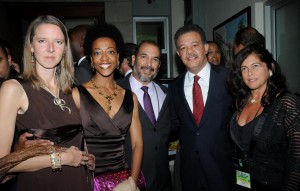Thu 18 Nov, 2010
Quick Takes on Race, Privilege, and Inequality for Nov. 18, 2010
Comment now Filed under: Quick TakesTags: Dominican Republic, Goodwin Liu, Juanita Brown, Katrina Browne, Racial profiling, Racial stereotypes, Traces of the Trade, Tracing Center
 “Quick Takes” offers a mix of news, opinion, and research related to race, privilege, and inequality.
“Quick Takes” offers a mix of news, opinion, and research related to race, privilege, and inequality.
Today’s “Quick Takes” includes racial profiling, textbooks with offensive stereotypes, movement on the Goodwin Liu nomination, and our film being screened in the Dominican Republic.
Readers are encouraged to share these stories and to offer their thoughts at the end of the post.
“Traces of the Trade” visits the Dominican Republic. Traces of the Trade, our award-winning PBS documentary about the U.S. role in the transatlantic slave trade, is being shown and discussed this week in the Dominican Republic courtesy of the U.S. State Department. Pictured above with the president of the Dominican Republic, Leonel Fernández, and actor Randi Acton are Katrina Browne, executive director of the Tracing Center on Histories and Legacies of Slavery and the producer/director of Traces of the Trade, and Juanita Brown, a board member and co-producer of the film.
Senate may vote on Goodwin Liu nomination. According to one Democratic senator, petitions are circulating on Capitol Hill to invoke cloture and force the U.S. Senate to vote on several of President Obama’s more controversial nominees, including Professor Goodwin Liu. Liu’s nomination for the Ninth Circuit generated controversy in the spring in part because a video showed him having the temerity to talk about (but not endorse) slavery reparations on a panel with Judy Woodruff and Charles Ogletree, following a screening of our Traces of the Trade.
Textbook promotes cultural sensitivity through outdated stereotypes. A former University of Central Florida nursing professor, Dr. Nancy Rudner Lugo, has sued the school, claiming she was dismissed from her tenure-track position for refusing to use a textbook she believes “contains antiquated and offensive racial, ethnic and other stereotypes.” The textbook, Guide to Culturally Competent Health Care, tells students that black Americans are generally “high-keyed, animated, confrontational and interpersonal,” value being overweight, and “tend to concentrate their efforts on day-to-day-survival.” The guide covers other racial and ethnic groups, too, advising readers to avoid, in the presence of Jewish patients, joking about the Holocaust or suggesting that “Jews are cheap or pampered.”
Racial profiling fundamentally flawed. According to William H. Press, a researcher at the University of Texas at Austin, racial and ethnic profiling may be a flawed security strategy, even in theory and without considering its moral implications or the resentment which profiling may generate. In a paper in next month’s issue of Significance, Press argues mathematically that even under ideal conditions, profiling is unlikely to result in identifying more suspects than random population sampling, and in some cases will actually be less effective.